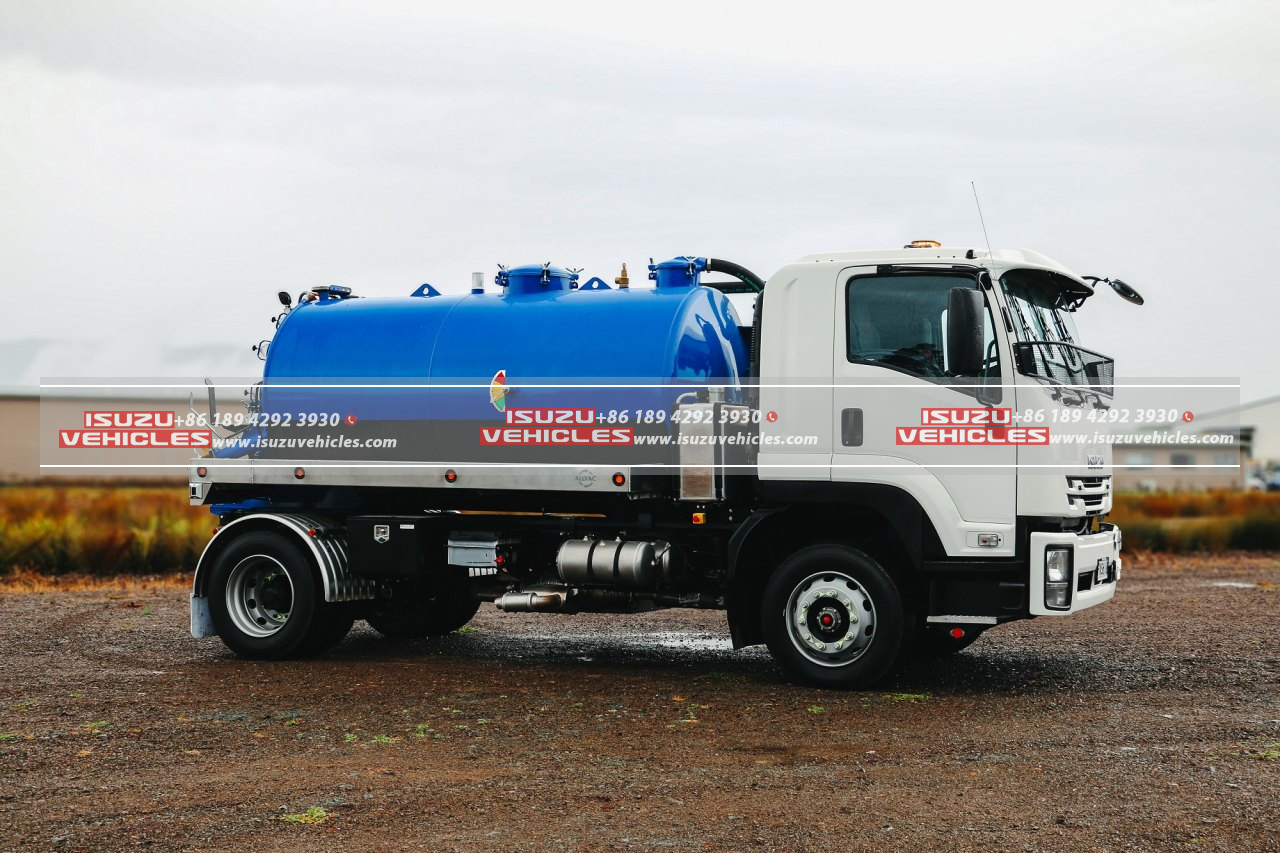
Libya, a country facing numerous infrastructural challenges, has made significant strides in improving its sewage system. The introduction of ISUZU sewer trucks has played a pivotal role in this transformation. This article delves into how these vehicles have revolutionized Libya’s sewage management, divided into five comprehensive parts.
1. The State of Libya’s Sewage System Before ISUZU Trucks
Historical Challenges
Libya’s sewage system has long been plagued by inefficiencies and inadequate infrastructure. Before the introduction of ISUZU sewer trucks, the country faced frequent blockages, overflows, and pollution issues. Aging pipelines, lack of proper maintenance, and insufficient sewage treatment facilities compounded these problems, leading to significant health and environmental hazards.
Impact on Public Health and Environment
The poor state of the sewage system had dire consequences for public health. Contaminated water sources led to outbreaks of waterborne diseases such as cholera and dysentery. Additionally, the overflow of untreated sewage into streets and waterways posed serious environmental threats, affecting marine life and polluting the natural ecosystem. The urgency to address these issues became a driving force behind seeking modern solutions.
2. Introduction of ISUZU Sewer Trucks
Adopting Modern Technology
In response to these pressing issues, Libya turned to modern technology for a solution. The adoption of ISUZU sewer trucks marked a significant step forward. These trucks, equipped with advanced features, provided an efficient and effective means of managing sewage. The integration of these vehicles into the sewage management system represented a commitment to modernizing infrastructure and improving public health.
Features of ISUZU Sewer Trucks
ISUZU sewer trucks are designed with a range of features that enhance their functionality and efficiency. Key attributes include:
- High-Capacity Tanks: Capable of holding large volumes of sewage, reducing the frequency of disposal trips.
- Powerful Vacuum Systems: Efficiently extract sewage from pipelines and septic tanks, ensuring thorough cleaning.
- Durable Construction: Built to withstand harsh conditions and heavy use, ensuring longevity and reliability.
- Advanced Control Systems: Provide operators with precise control over the vacuum and disposal processes, enhancing efficiency and safety.
3. Enhancing Operational Efficiency
Streamlined Sewage Management
The introduction of ISUZU sewer trucks has significantly streamlined sewage management operations in Libya. These vehicles have replaced outdated methods with a more organized and systematic approach. The high-capacity tanks and powerful vacuum systems allow for quicker and more efficient sewage extraction, reducing the time and labor required for maintenance.
Reducing Blockages and Overflows
Regular use of ISUZU sewer trucks has led to a marked reduction in blockages and overflows. By maintaining a consistent schedule of sewage extraction and pipeline cleaning, the trucks prevent the accumulation of debris and sludge that cause these issues. This proactive approach not only keeps the sewage system functioning smoothly but also reduces the occurrence of emergency situations requiring immediate attention.
4. Impact on Public Health and Environment
Improving Public Health
One of the most significant benefits of ISUZU sewer trucks has been the improvement in public health. Efficient sewage extraction and disposal have minimized the risk of waterborne diseases. Cleaner streets and waterways have led to a healthier living environment for residents, reducing the incidence of illness related to sewage contamination.
Environmental Benefits
The environmental impact of improved sewage management cannot be overstated. By preventing the overflow of untreated sewage into natural water sources, ISUZU sewer trucks have helped protect Libya’s delicate ecosystems. Marine life is no longer as threatened by pollution, and the natural beauty of the environment is preserved. Additionally, proper sewage disposal helps mitigate soil contamination, contributing to more sustainable land use practices.
5. Future Prospects and Sustainability
Expanding the Fleet
Looking to the future, expanding the fleet of ISUZU sewer trucks is a key priority. Increasing the number of trucks will allow for more comprehensive coverage of urban and rural areas, ensuring that all communities benefit from improved sewage management. This expansion is crucial for sustaining the progress made and addressing any remaining gaps in the system.
Training and Maintenance
Ensuring the long-term success of ISUZU sewer trucks requires ongoing training and maintenance. Operators need regular training to stay updated on best practices and new technologies. Additionally, a robust maintenance schedule is essential to keep the trucks in optimal condition. Investing in these areas will maximize the effectiveness and lifespan of the vehicles, securing their role in Libya’s sewage management system for years to come.
Sustainable Practices
Emphasizing sustainability in sewage management practices is vital. ISUZU sewer trucks can play a role in promoting environmentally friendly practices, such as recycling treated sewage water for agricultural use. By integrating sustainable solutions, Libya can continue to improve its infrastructure while protecting natural resources and promoting ecological balance.
Conclusion
The transformation of Libya’s sewage system through the introduction of ISUZU sewer trucks represents a significant advancement in the country’s infrastructure. These vehicles have revolutionized sewage management by enhancing operational efficiency, improving public health, and protecting the environment. As Libya continues to expand and maintain its fleet of ISUZU sewer trucks, the future looks promising for sustainable and efficient sewage management. This transformation not only addresses immediate challenges but also sets the stage for a healthier and more resilient infrastructure.
